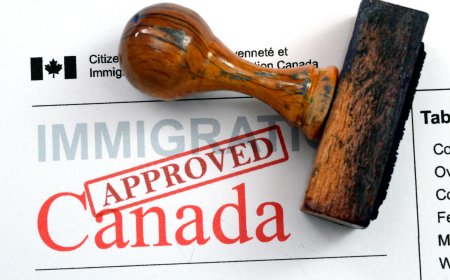Canada, in its pursuit of growth and diversity, is poised to welcome an unprecedented number of 500,000 new permanent residents annually in 2025 and 2026, marking the highest level in its history. Over 85% of these permanent residents eventually transition into Canadian citizens, underscoring Canada's reputation for having one of the most inclusive citizenship policies worldwide.
In 2023 alone, data from Immigration, Refugees and Citizenship Canada (IRCC) revealed that more than 354,000 individuals embraced Canadian citizenship through over 3,000 citizenship ceremonies.
Eligibility for Canadian Citizenship
To qualify for Canadian citizenship, individuals must fulfill several criteria:
- Hold permanent resident status.
- Meet the physical presence requirements stipulated by Canada.
- Fulfill tax filing obligations if applicable.
- Successfully pass the Canadian citizenship test (for individuals aged 18-54).
- Demonstrate proficiency in English or French (for individuals aged 18-54).
Primarily, applicants must hold permanent resident status to commence the process of obtaining Canadian citizenship. IRCC mandates that individuals can apply for citizenship after maintaining physical residency in Canada for three years (equivalent to 1,095 days) out of the five years immediately preceding the citizenship application.
For those eligible, filing taxes in Canada for at least three years within the five-year period before submitting the citizenship application is a prerequisite.
Applicants aged between 18 and 54 are required to undergo a Canadian citizenship test, a 30-minute examination comprising multiple-choice and true or false questions. The test can be undertaken in either English or French. Additionally, individuals within this age bracket must demonstrate proficiency in English or French at a Canadian Language Benchmarks (CLB) level of 4 or higher.
Ineligibility Criteria for Canadian Citizenship
Certain circumstances may render individuals ineligible for Canadian citizenship. As outlined by IRCC, the following situations may prevent one from acquiring Canadian citizenship:
- Serving a term of imprisonment, on parole, or probation within Canada.
- Serving a sentence outside Canada.
- Facing charges, undergoing trial, or involved in an appeal for an offense under the Citizenship Act or an indictable offense in Canada committed outside Canada.
- Subject to a removal order issued by Canadian authorities.
- Under investigation for, charged with, on trial for, involved in an appeal for, or convicted of a war crime or a crime against humanity.
- Previous refusal of a citizenship application due to misrepresentation within the past 5 years.
- Revocation of Canadian citizenship (due to fraud) within the past 10 years.
- Conviction of an indictable offense in Canada or an offense under the Citizenship Act within the four years preceding the application (if submitted after June 11, 2015).
- Conviction of an offense outside Canada equivalent to an indictable offense in Canada within the four years preceding the application, regardless of pardon or amnesty.
- Conviction of terrorism, high treason, treason, or spying offenses while a permanent resident, or serving as a member of an armed force or organized armed group engaged in armed conflict with Canada.

 Like
0
Like
0
 Dislike
0
Dislike
0
 Love
0
Love
0
 Funny
0
Funny
0
 Angry
0
Angry
0
 Sad
0
Sad
0
 Wow
0
Wow
0







































































